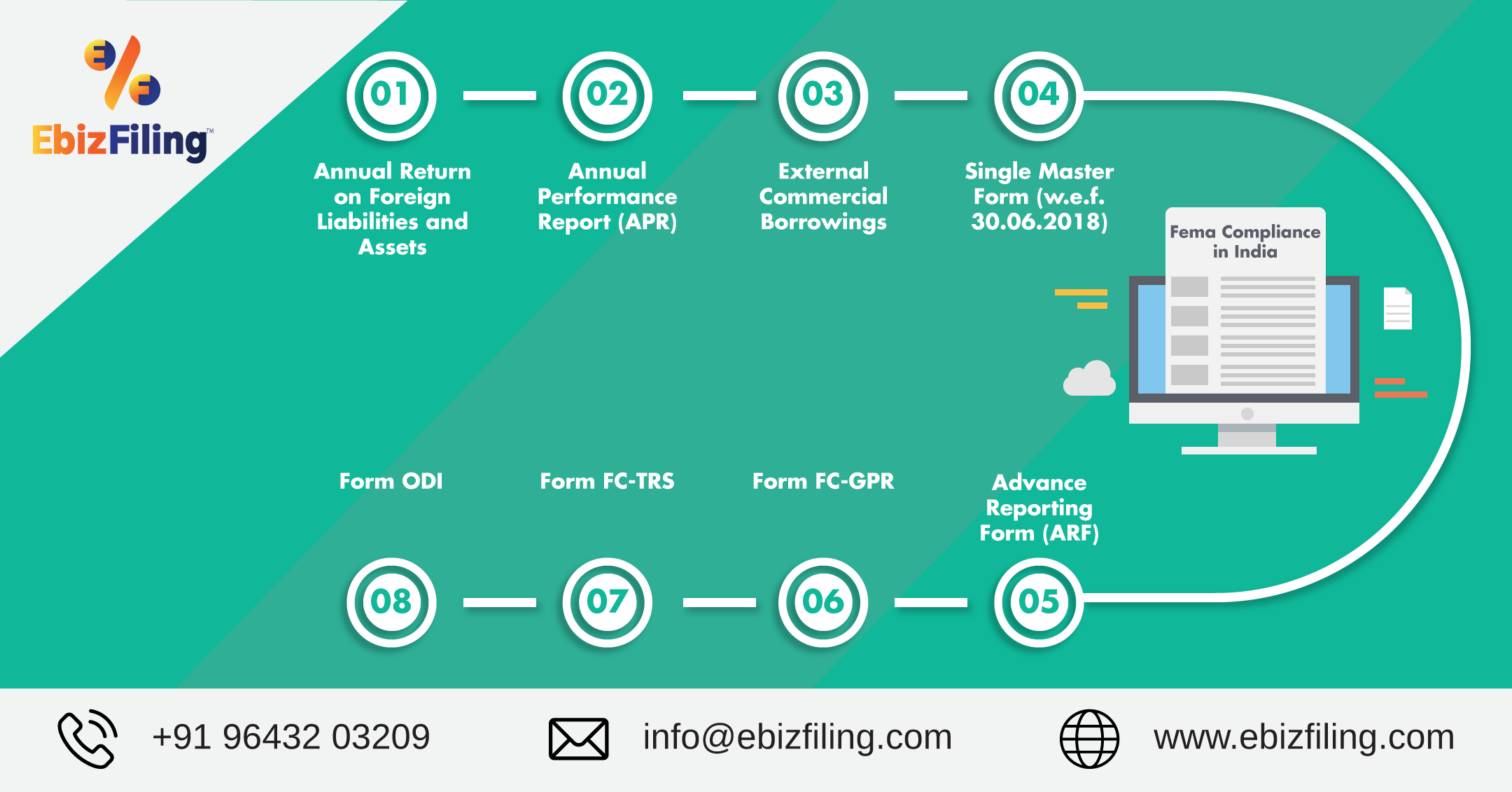Documents Required for FEMA Compliance in India
Some essential documents include:
- Certificate of Incorporation : Legal proof of company registration, issued by the Registrar of Companies.
- MOA & AOA : Defines company’s objectives (MOA) and internal rules (AOA) for smooth operations.
- Board Resolution : Official approval from directors for investment or foreign exchange transactions.
- Audited Financial Statements : Last year’s financial records to ensure compliance and transparency.
- Identity & Address Proofs : Required for both investor and investee to verify authenticity.
- Shareholding Pattern : Shows company ownership structure before and after the investment.
- Affidavit Declaration : A legal statement from the investee confirming compliance with FEMA rules.
- Joint Venture/Shareholder Agreement : Agreement terms if there’s a foreign joint venture or partnership.
- Downstream Intimation Copy : Proof of investment made by an Indian company in another Indian entity.
- FIPB/SIA/RBI Approval Copies : Necessary government approvals for foreign investments, if applicable.
- Foreign Inward Remittance Certificate (FIRC) : Proof of foreign funds received in India.
- High Court Order : Required if the court approves any arrangement or restructuring.
- Valuation Certificate : Confirms fair valuation of shares, accepted by authorities.
Process for FEMA Compliance in India
Follow these simple steps for completing FEMA Compliance in India:
Step 1: Identify its Applicability
Check whether if FEMA (Foreign Exchange Management Act) applies based on foreign transactions, investments, or remittances.
Step 2: Obtain Necessary Approvals
Seek RBI approval if required for foreign investments, remittances, or external borrowings.
Step 3: Adhere to Reporting Requirements
File reports such as FC-GPR, FC-TRS, and ECB returns with the RBI for foreign investments or borrowings.
Step 4: Comply with Sectoral Caps & Restrictions
Ensure compliance with FDI limits and prohibited sectors as per FEMA guidelines.
Step 5: Maintain Proper Documentation
Keep records of foreign transactions, approvals, and financial statements for audit and verification.
Step 6: File Annual and Periodic Returns
Submit the Foreign Liabilities and Assets (FLA) Return and other mandatory filings to the RBI.
Step 7: Ensure Ongoing Compliance
Regularly monitor changes in FEMA regulations and adhere to RBI notifications.
Conclusion
FEMA compliance is essential for smooth foreign transactions and avoiding legal issues. By following FEMA rules, businesses can ensure smooth investments, global expansion, and financial security. Staying updated and adhering to guidelines helps in maintaining growth.
Suggested Read :
RBI Rules for Foreign Subsidiary Companies
Branch Office and Indian Subsidiary











Reviews
Amrish Ganatra
28 Nov 2017"Our Company being an Indian Subsidiary requires much compliance, but ebizfiling has provided us end to end services. They are very important part of our business. They handle all of the legal tasks in India. I highly recommend ebizfiling for non-residents thinking of starting a project in India."
Mohit Dhiman
09 Dec 2017Fast and reliable service. Professional team dealt with my application sincerely. Work completed by the team as per the commitment.
February 23, 2026 By Steffy A
Why Online Legal Services Are Growing in India ? Introduction The legal industry is evolving rapidly as technology reshapes how legal assistance is delivered. In India, online legal services are growing because they address historical challenges such as court […]
February 19, 2026 By Steffy A
Why More Businesses Are Choosing Outsourcing Legal Work? Introduction. Businesses are increasingly turning to outsourcing legal work to manage compliance, contracts, and regulatory responsibilities more efficiently. Through Legal Process Outsourcing, companies can reduce operational costs while gaining access to experienced […]
September 30, 2025 By Dhruvi D
CA vs CS Certificates in India – Types, Fees, and Compliance Explained Introduction Certificates issued by Chartered Accountants (CAs) and Company Secretaries (CSs) play a pivotal role in India’s compliance ecosystem. Whether you’re a startup raising funds, a listed company, […]